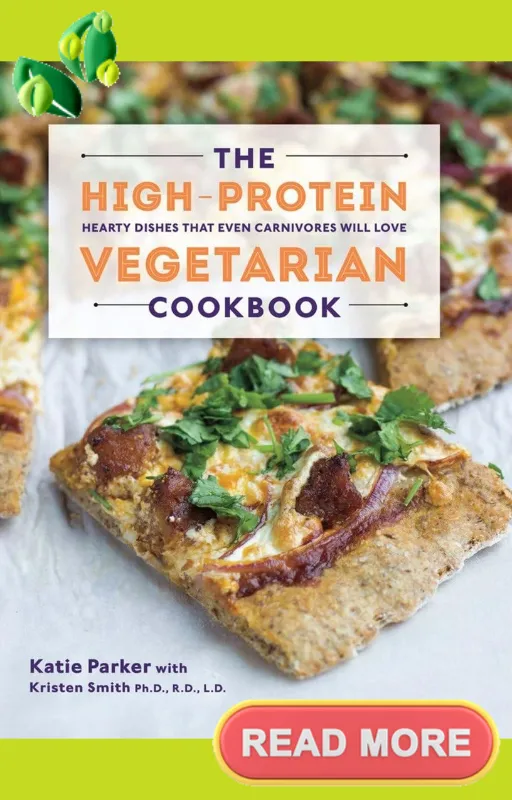In a world where the quest for healthier, more sustainable eating habits is on the rise, one question frequently emerges: how can vegetarians ensure they’re getting enough protein?
Look no further!
This article delves into creative and delicious vegetarian recipes high protein that will not only satisfy your taste buds but also meet your nutritional needs.
Whether you’re a seasoned vegetarian or simply looking to incorporate more plant-based meals into your diet, these recipes are designed to keep you fueled, fit, and feeling fantastic.
Imagine indulging in a hearty black bean quinoa bowl loaded with fresh vegetables or savoring a creamy lentil curry that packs a powerful punch of protein.
Gone are the days when vegetarians had to rely solely on tofu and tempeh; today’s culinary landscape offers an exciting array of ingredients capable of transforming any dish into a protein powerhouse.
Ready to redefine your meal plan and discover new favorites? Let’s dive into these mouth-watering, nutrient-dense vegetarian recipes that prove you don’t need meat to meet your protein needs.
In recent years, the popularity of vegetarianism has been steadily increasing as more people become aware of the health and environmental benefits of plant-based diets.
While many may have concerns about getting enough protein on a vegetarian diet, there are plenty of delicious and nutritious options available.
In this article, we will explore a variety of vegetarian recipes that are not only high in protein but also easy to prepare and incredibly satisfying.
Whether you are a long-time vegetarian looking to switch up your meal routine or someone looking to incorporate more plant-based dishes into your diet, these recipes will prove that you can meet your protein needs without relying on meat.
From hearty lentil soups to protein-packed salads and flavorful tofu stir-fries, there is no shortage of options for those looking to boost their protein intake while still enjoying delicious meals.
So put on your apron, sharpen your knives, and get ready to discover a world of vegetarian recipes that are not only nutritious but also incredibly tasty.
Table of Contents Vegetarian Recipes High Protein
Energize with plant-based protein sources
Harnessing the power of plant-based protein sources can significantly enhance your energy levels and overall well-being.
Incorporating legumes, nuts, seeds, and whole grains into your diet can provide the necessary nutrients to support your active lifestyle and promote muscle recovery.
These protein-rich plant foods are not only packed with essential amino acids but also offer a wide array of vitamins, minerals, and antioxidants that contribute to optimal health.
By diversifying your diet with a variety of plant-based proteins, you can ensure a well-rounded nutrient intake while enjoying delicious and satisfying meals that fuel your body efficiently.
Tofu and tempeh powerhouses featured
Tofu and tempeh are versatile powerhouses in vegetarian cuisine, offering plenty of plant-based protein to support your dietary needs.
Tofu, made from soy milk curds, is rich in protein, iron, and calcium, making it a nutritious addition to stir-fries, salads, and smoothies.
On the other hand, tempeh, a fermented soybean product, provides a hearty texture and a nutty flavor profile that enhances various dishes like sandwiches, stews, and grain bowls.
Both tofu and tempeh serve as excellent meat alternatives, allowing you to enjoy high-protein meals that are both delicious and satisfying.
Incorporating these plant-based protein sources into your diet ensures you receive essential nutrients while exploring a wide range of flavorful vegetarian recipes.
Lentils and beans protein-packed options
Including lentils and beans in your vegetarian diet can significantly boost your protein intake and enhance the nutritional value of your meals.
Lentils, a staple in many cuisines worldwide, are a rich source of plant-based protein, fiber, and various vitamins and minerals.
Their versatility allows you to create hearty soups, salads, and stews, providing a satisfying and filling meal.
Similarly, beans such as chickpeas, black beans, and kidney beans offer ample protein content along with essential nutrients like iron, potassium, and folate.
By incorporating lentils and beans into your vegetarian dishes, you can create a diverse array of protein-packed options that cater to your dietary requirements while promoting overall well-being.
Quinoa and chia seed recipes
Quinoa, a gluten-free grain packed with protein and essential amino acids, along with nutrient-dense chia seeds, can elevate the nutritional profile of your vegetarian meals to new heights.
Consider incorporating these superfoods into your diet to enhance the plant-based protein content while reaping the numerous health benefits they offer.
From quinoa salads bursting with colorful vegetables to chia seed pudding for a protein-rich breakfast or snack option, the versatility of these ingredients allows for the creation of a wide array of delectable dishes.
Explore innovative recipes that combine quinoa and chia seeds to add a flavorful touch, providing a satisfying and nourishing addition to your high-protein vegetarian repertoire.
Nuts and seeds for protein
Nuts and seeds are another excellent source of plant-based protein to incorporate into your vegetarian meals.
Almonds, walnuts, sunflower seeds, and pumpkin seeds are not only rich in protein but also provide essential nutrients like healthy fats, fiber, vitamins, and minerals.
Including a variety of nuts and seeds in your diet can help you meet your daily protein requirements and add a delightful crunch to your dishes.
Sprinkle some toasted sesame seeds on your salads, blend almonds into a creamy nut butter for a protein-packed spread, or add crushed walnuts to your oatmeal for a nutritious breakfast option.
Experiment with different nuts and seeds to enhance the flavor and nutritional value of your vegetarian recipes.
Explore high-protein vegetarian meals
When exploring high-protein vegetarian meals, incorporating legumes such as chickpeas, lentils, and black beans can significantly elevate the protein content of your dishes.
Legumes are not only rich in protein but also provide a good source of fiber, vitamins, and minerals.
Consider adding chickpeas to salads, making lentil soups, or preparing black bean tacos for a satisfying and nutritious meal.
The versatility of legumes allows for endless culinary possibilities, from hearty stews to flavorful curries, making them a staple ingredient in high-protein vegetarian cooking.
Incorporate soy products creatively
Soy products can be a versatile and valuable addition to your high-protein vegetarian diet.
Tofu, tempeh, and edamame are excellent sources of plant-based protein that can be incorporated creatively into various dishes.
Tofu, for example, can be marinated and grilled as a flavorful meat substitute, added to stir-fries for a protein boost, or blended into smoothies for a creamy texture.
Tempeh, with its nutty flavor and firm texture, can be crumbled and used as a substitute for ground meat in dishes like tacos or pasta sauces.
Edamame, young soybeans, can be enjoyed as a snack, added to salads for a protein punch, or blended into dips for extra creaminess.
By experimenting with different soy products, you can enhance the protein content and taste of your vegetarian meals, adding variety and nutrients to your diet.
Create balanced meat-free protein dishes
Crafting balanced meat-free protein dishes requires thoughtful planning and a creative approach to ingredient selection.
Legumes such as chickpeas, lentils, and black beans are excellent sources of protein and can serve as the foundation for hearty and nutritious meals.
Incorporating whole grains like quinoa, brown rice, and farro adds essential nutrients and complements the protein content of your dishes.
Vegetables such as spinach, broccoli, and Brussels sprouts not only contribute additional protein but also provide a range of vitamins and minerals essential for a well-rounded diet.
Experimenting with different herbs, spices, and plant-based condiments can enhance the flavors of your dishes while ensuring a diverse nutrient profile.
By combining these diverse elements in innovative ways, you can create satisfying and protein-rich vegetarian meals that support your dietary goals.
In conclusion, incorporating high-protein vegetarian recipes into one’s diet can be a delicious and nutritious way to meet daily protein requirements and maintain a balanced, plant-based lifestyle.
By exploring a variety of protein-rich ingredients such as legumes, tofu, tempeh, quinoa, and nuts, individuals can create flavorful and satisfying meals that contribute to overall health and wellness.
Whether pursuing a vegetarian diet for ethical, environmental, or health reasons, these recipes offer a wealth of possibilities for those seeking to elevate their protein intake while enjoying the benefits of plant-based eating.
With a focus on diverse and nutrient-dense ingredients, these high-protein vegetarian recipes can help individuals thrive and embrace the power of plant-based nutrition.
FAQ
What are some high-protein vegetarian recipes that can help meet daily protein requirements?
Some high-protein vegetarian recipes that can help meet daily protein requirements include tofu stir-fry with vegetables and quinoa, lentil soup with chickpeas and spinach, black bean tacos with avocado and salsa, Greek yogurt with mixed berries and nuts, and chickpea salad with feta cheese and olives.
These recipes offer a good balance of protein from plant-based sources to support a vegetarian diet and meet daily protein needs.
How can I ensure I am getting enough protein in my vegetarian diet without relying on meat sources?
You can ensure you are getting enough protein in your vegetarian diet by incorporating a variety of plant-based protein sources such as legumes, beans, nuts, seeds, tofu, tempeh, quinoa, and whole grains.
Additionally, consuming a well-balanced diet with diverse fruits and vegetables can help meet your protein needs.
Consider incorporating protein-rich snacks like Greek yogurt, cottage cheese, or protein bars to supplement your protein intake.
Lastly, consulting a registered dietitian or nutritionist for personalized recommendations can help ensure you are meeting your protein requirements on a vegetarian diet.
Are there any specific ingredients or food combinations that can help boost the protein content of vegetarian recipes?
Yes, incorporating ingredients such as tofu, tempeh, legumes (beans, lentils, chickpeas), quinoa, Greek yogurt, nuts, seeds, and nutritional yeast into vegetarian recipes can help boost protein content.
Combining these ingredients in dishes like stir-fries, salads, soups, or grain bowls can provide a well-rounded source of plant-based protein for vegetarians.
Can you provide some examples of vegetarian recipes that are not only high in protein, but also easy to prepare and delicious?
Some examples of vegetarian recipes high in protein, easy to prepare, and delicious include lentil soups, chickpea salads, tofu stir-fries, black bean tacos, quinoa bowls with roasted vegetables, and lentil curry with brown rice.
These recipes are not only quick to make but also packed with essential nutrients and flavors that will satisfy your taste buds.
Are there any plant-based protein sources that are particularly beneficial for vegetarians looking to increase their protein intake in their recipes?
Yes, plant-based protein sources such as tofu, tempeh, lentils, chickpeas, quinoa, chia seeds, and hemp seeds are particularly beneficial for vegetarians looking to increase their protein intake in recipes.
These foods are not only rich in protein but also provide essential nutrients and can easily be incorporated into a variety of dishes to help vegetarians meet their protein needs.

